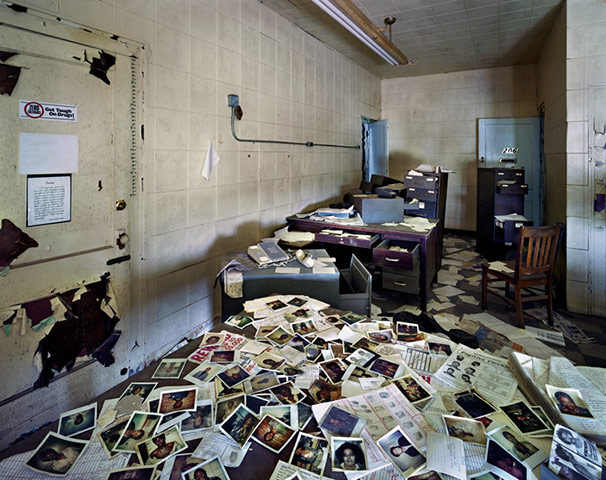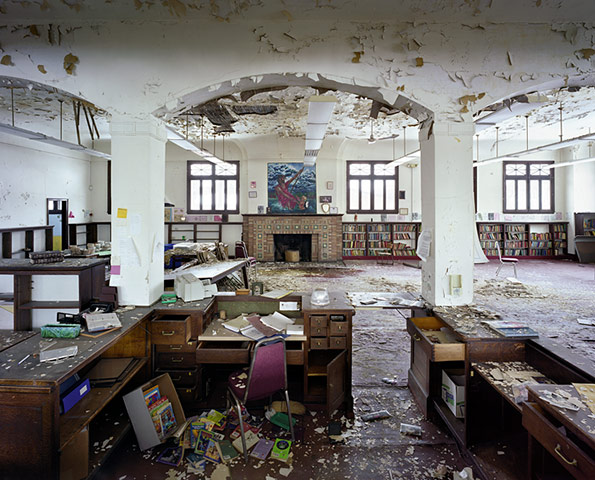I’ve read with… well not exactly dismay because it is part of the whole USA falling into a chasm… more resignation, the stories recently of the US Congress setting up a body to probe US Muslims, of US taxes going towards law enforcement bodies to “educate” them about Islam and instead failing to do so, and about Tennessee wanting to ban Sharia.
[ok I now have a fever and am sick, so if this post doesn’t make all the sense that I intend, apologies]
The stories above are just the Government actions taken against US Muslims. They do not detail in any way the daily prejudice, discrimination and bigotry faced by Muslims in the US. Islamaphobia is in full swing.
From where I’m sitting (sick and fuzzy headed), the Islamaphobia in the US (yes, I know it exists in Australia too, and is equally problematic) can lead to some very bad outcomes. The estimated number of Muslims in the US is around 2.3% of the US population (Australia’s Muslim population is 1.71% of the overall population). There just are not enough Muslims in the US (or Australia) to rise up and protest against the oppression they’re suffering (unlike the peoples in many Middle Eastern nations currently – which has nothing to do with Islam and all to do with oppression, lack of opportunities, etc). The research on stereotype threat also suggests that Muslims may feel that they have to conform to the predominant sterotype held of them, which doesn’t do anyone any favours.
If we look back at history, we can see many many examples of groups that have been vilified and terrible results (clearly we are very bad at learning from history and are doomed to repeat it). The news media played a large part in the Rwandan Genocide.
According to recent commentators, the news media played a crucial role in the genocide; local print and radio media fueled the killings while the international media either ignored or seriously misconstrued events on the ground.[14] The print media in Rwanda is believed to have started hate speech against Tutsis, which was later continued by radio stations. According to commentators, anti-Tutsi hate speech “…became so systemic as to seem the norm.”
…
From late October 1993, the RTLM repeatedly broadcast themes developed by the extremist written press, underlining the inherent differences between Hutu and Tutsi, the foreign origin of Tutsi, the disproportionate share of Tutsi wealth and power, and the horrors of past Tutsi rule. The RTLM also repeatedly stressed the need to be alert to Tutsi plots and possible attacks. It warned Hutu to prepare to “defend” themselves against the Tutsi. (Source: Wikipedia – link above)
Sound familiar?
We can also look at the internment of Japanese people (definitions on who was Japanese or not was interestingly broad) in the US during World War 2.
Many concerns over the loyalty of ethnic Japanese seemed to stem from racial prejudice rather than evidence of actual malfeasance. Major Karl Bendetsen and Lieutenant General John L. DeWitt, head of the Western Command, each questioned Japanese American loyalty. DeWitt, who administered the internment program, repeatedly told newspapers that “A Jap’s a Jap” and testified to Congress,
I don’t want any of them [persons of Japanese ancestry] here. They are a dangerous element. There is no way to determine their loyalty… It makes no difference whether he is an American citizen, he is still a Japanese. American citizenship does not necessarily determine loyalty… But we must worry about the Japanese all the time until he is wiped off the map.
…
Internment was popular among many white farmers who resented the Japanese-American farmers. “White American farmers admitted that their self-interest required removal of the Japanese.” These individuals saw internment as a convenient means of uprooting their Japanese American competitors. Austin E. Anson, managing secretary of the Salinas Vegetable Grower-Shipper Association, told the Saturday Evening Post in 1942:
“We’re charged with wanting to get rid of the Japs for selfish reasons. We do. It’s a question of whether the white man lives on the Pacific Coast or the brown men. They came into this valley to work, and they stayed to take over… If all the Japs were removed tomorrow, we’d never miss them in two weeks, because the white farmers can take over and produce everything the Jap grows. And we do not want them back when the war ends, either.”
The Roberts Commission Report, prepared at President Franklin D. Roosevelt’s request, has been cited as an example of the fear and prejudice informing the thinking behind the internment program. The Report sought to link Japanese Americans with espionage activity, and to associate them with the bombing of Pearl Harbor. Columnist Henry McLemore reflected growing public sentiment fueled by this report:
“I am for the immediate removal of every Japanese on the West Coast to a point deep in the interior. I don’t mean a nice part of the interior either. Herd ’em up, pack ’em off and give ’em the inside room in the badlands… Personally, I hate the Japanese. And that goes for all of them.”
Other California newspapers also embraced this view. According to a Los Angeles Times editorial,
“A viper is nonetheless a viper wherever the egg is hatched… So, a Japanese American born of Japanese parents, nurtured upon Japanese traditions, living in a transplanted Japanese atmosphere… notwithstanding his nominal brand of accidental citizenship almost inevitably and with the rarest exceptions grows up to be a Japanese, and not an American… Thus, while it might cause injustice to a few to treat them all as potential enemies, I cannot escape the conclusion… that such treatment… should be accorded to each and all of them while we are at war with their race.” (Source: Wikipedia article linked above)
Again, the same sort of language is used to vilify a group, which then results in investigation and restriction of that group’s ability to participate in society. I worry that the Muslims in the West (particularly in the US and Australia) are going to be increasingly targeted and that is going to end up being really bad. I don’t really have a solution, just fears that the situation is going to get worse, but I hope I can stand up against Islamaphobia whenever I encounter it.
Propagating this fear runs the risk of radicalising the general population against those who follow Islam, and that crimes against Muslims may not be reported or may not be fully investigated by the authorities. Discrimination and prejudice will continue to rise, people may feel obliged to recant their faith in order to face less bigotry, to hide their culture and act white, to remove their sense of self to find some safety. This sucks.



